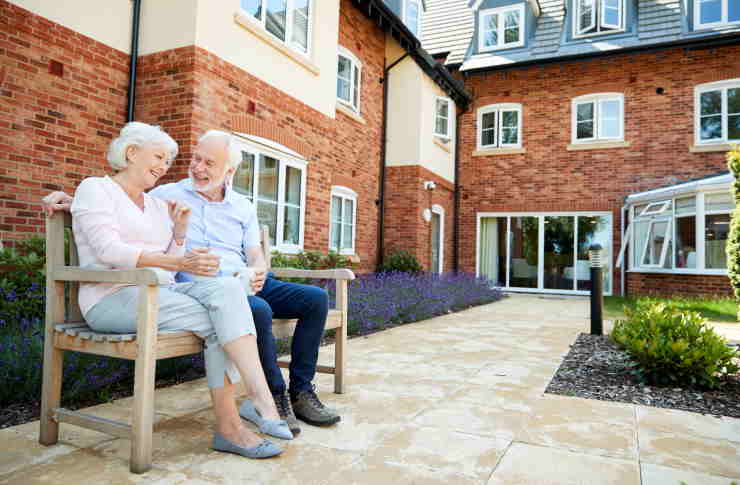Affordable Apartments for Seniors: A Guide to Finding the Perfect Housing Option
Senior apartments provide a vibrant living option for older adults seeking a low-maintenance lifestyle and enhanced community engagement. Catering to those aged 55+ or 62+, these residences blend independent living with tailored amenities. From diverse apartment types and pricing to comprehensive living options and levels of care, understanding this landscape can guide seniors to optimal housing choices.

What Are the Main Types of Senior Apartments Available?
Senior apartments come in various forms to cater to different needs and preferences. Independent living apartments are designed for active seniors who can manage daily tasks without assistance. These units often feature accessibility modifications like grab bars and wider doorways. Assisted living apartments provide additional support with daily activities such as meal preparation, medication management, and personal care. For those requiring more comprehensive care, memory care apartments are specially designed for seniors with Alzheimer’s or dementia, offering a secure environment with 24/7 supervision.
How Do Senior Apartment Pricing Structures Work?
Senior apartment pricing can vary widely depending on the type of accommodation, location, and services provided. Generally, there are three main pricing structures:
-
Rental Model: Residents pay a monthly rent, which may include some utilities and basic services.
-
Buy-In Model: Seniors purchase their apartment outright or through a long-term lease, often with additional monthly fees for services and maintenance.
-
Pay-as-You-Go Model: Residents are charged based on the specific services they use, in addition to a base rent or purchase price.
It’s important to note that prices can fluctuate based on market conditions and the level of care required.
Prices, rates, or cost estimates mentioned in this article are based on the latest available information but may change over time. Independent research is advised before making financial decisions.
What Are All-Inclusive Living Options for Seniors?
All-inclusive senior living options provide a comprehensive package of services and amenities for a single monthly fee. These arrangements typically include:
-
Accommodation
-
Meals and dining services
-
Utilities (including internet and cable TV)
-
Housekeeping and laundry services
-
Transportation services
-
Social activities and events
-
Basic healthcare services
All-inclusive options can offer peace of mind and simplify budgeting for seniors, as most daily living expenses are covered under one predictable payment.
Which Affordable Housing Programs Are Available for Seniors?
In Australia, several programs aim to make senior housing more accessible and affordable:
-
Commonwealth Rent Assistance: This program provides financial support to eligible seniors renting in the private market or community housing.
-
Public Housing: State and territory governments offer subsidised rental housing for low-income seniors.
-
National Rental Affordability Scheme (NRAS): This initiative encourages the construction of affordable rental properties, including those suitable for seniors.
-
Retirement Villages: While not always the cheapest option, some retirement villages offer more affordable units or shared equity arrangements.
-
Home Care Packages: Although not strictly a housing program, these packages can help seniors modify their existing homes to make them more suitable for ageing in place.
How Do Continuing Care Retirement Communities (CCRCs) Work?
Continuing Care Retirement Communities (CCRCs), also known as Life Plan Communities, offer a unique approach to senior living. These communities provide a continuum of care, allowing residents to transition between different levels of care as their needs change over time. CCRCs typically offer:
-
Independent Living: For active seniors requiring minimal assistance.
-
Assisted Living: For those needing help with daily activities.
-
Skilled Nursing Care: For residents requiring more intensive medical care.
-
Memory Care: Specialised care for those with cognitive impairments.
Residents usually pay an entrance fee and ongoing monthly fees, which cover accommodation, services, and future care needs. This model allows seniors to plan for their long-term care needs while maintaining their independence for as long as possible.
What Factors Should You Consider When Choosing Senior Apartments?
When selecting a senior apartment, consider the following factors:
-
Location: Proximity to family, healthcare facilities, and amenities.
-
Level of Care: Current and potential future care needs.
-
Community Atmosphere: Social activities, resident demographics, and overall vibe.
-
Costs: Upfront fees, monthly charges, and potential future expenses.
-
Contract Terms: Understanding the fine print, including what happens if care needs change.
-
Accreditation and Reputation: Ensure the facility meets industry standards and has positive reviews.
| Provider | Type of Housing | Monthly Cost Range (AUD) | Key Features |
|---|---|---|---|
| Aveo | Independent Living | $1,500 - $3,000 | Multiple locations, social activities, 24/7 emergency assistance |
| Uniting | Assisted Living | $2,500 - $4,500 | Personal care, meal services, health monitoring |
| Opal HealthCare | Aged Care | $3,500 - $6,000 | 24/7 nursing care, specialised dementia support, rehabilitation services |
| Lendlease | Retirement Villages | $1,200 - $2,500 | Community facilities, maintenance-free living, social programs |
| BlueCross | CCRC | $2,000 - $5,000 | Continuum of care, ageing in place, diverse activity programs |
Prices, rates, or cost estimates mentioned in this article are based on the latest available information but may change over time. Independent research is advised before making financial decisions.
Choosing the right senior apartment involves careful consideration of your current and future needs, financial situation, and lifestyle preferences. By understanding the various options available, from affordable housing programs to all-inclusive communities, you can make an informed decision that ensures comfort, security, and quality of life in your golden years.




